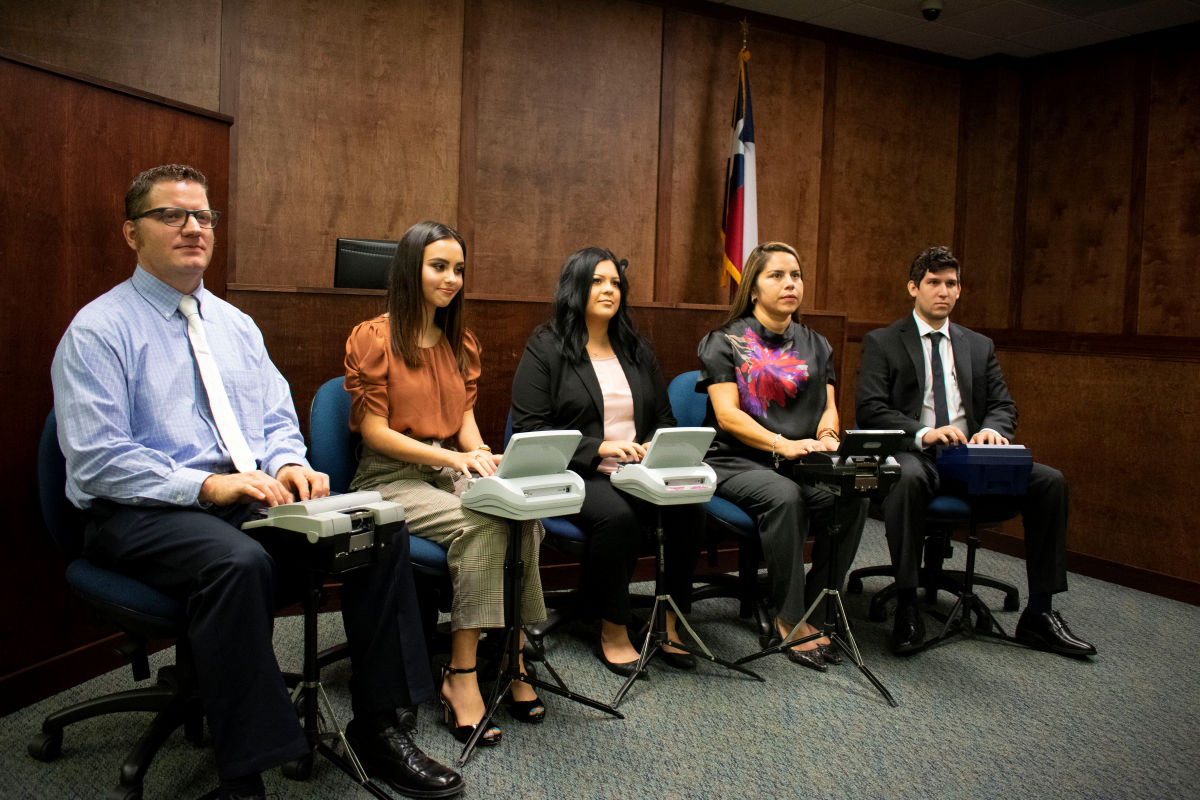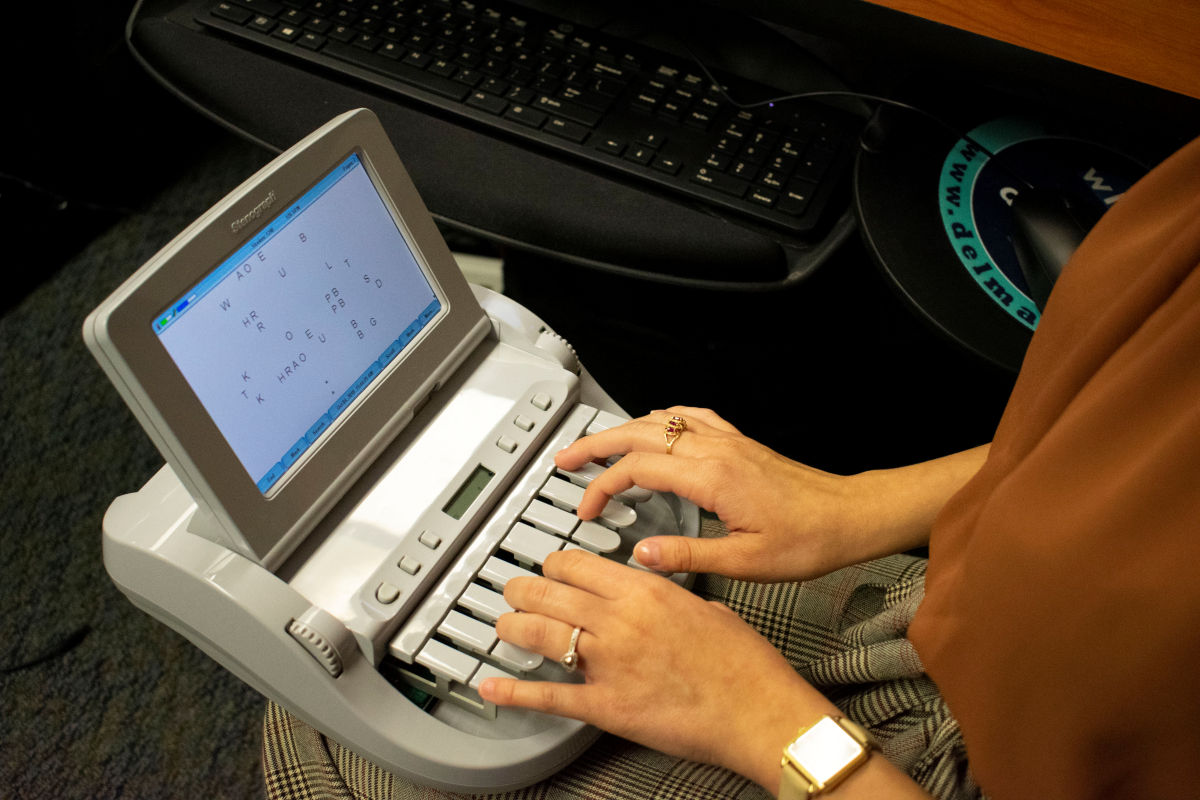Advanced Court Reporting Technology for Seamless Legal Documentation
Advanced Court Reporting Technology for Seamless Legal Documentation
Blog Article
Understanding the Value of Court Coverage in Legal Services and Procedures
Court reporting plays a critical duty in the legal landscape, acting as the foundation of accurate paperwork in numerous legal procedures. By giving verbatim transcripts, court reporters make certain that every testimony and disagreement is diligently captured, thus guarding the integrity of the judicial process. Beyond simple documents, their work supports fairness and transparency, which are essential concepts of justice. The evolution of technology and the moral effects bordering this career raise important questions about its future. What might these modifications mean for the legal system and its stakeholders?
Role of Court Reporters

In enhancement to transcription, stenotype reporter are often tasked with managing and keeping the flow of process. They must excel in lawful terms and possess a comprehensive understanding of court methods to make sure that the document reflects the context and nuances of the discussion. Their job may also expand beyond standard courts, including management hearings, adjudications, and various other legal setups where documents is vital.
Additionally, stenotype reporter might supply real-time reporting, allowing immediate accessibility to records during process, which can be important for the effective management of justice. By making sure that an accurate document is kept, court press reporters maintain the stability of the legal procedure, assisting in appeals and offering as an important resource for lawful specialists in their pursuit of justice.
Relevance of Accuracy

The function of precision expands past mere transcription; it encompasses the capability to catch the subtleties of speech, consisting of tone, focus, and non-verbal cues, which can be essential in comprehending the context of declarations made. A specific document makes certain that all parties involved-- attorneys, courts, and courts-- have accessibility to the very same details, cultivating justness and openness in the judicial procedure.
Additionally, precise transcripts are important for the appellate process, where higher courts count on them to evaluate lower court decisions. Inaccuracies can threaten the end result of an allure, possibly impacting a celebration's freedoms and rights. Hence, the dedication to precision in court reporting is not simply a specialist obligation but a cornerstone of justice that supports the policy of regulation.
Kinds Of Lawful Procedures
Covering a vast variety of legal contexts, court reporters are important in various types of legal proceedings, each requiring distinct methods and abilities. Amongst the most usual types are civil lawsuits, criminal tests, and administrative hearings. In civil lawsuits, court press reporters capture activities, statements, and depositions, guaranteeing that every information is documented precisely for possible appeals or settlements.
In criminal tests, the role of stenotype reporter comes to be much more critical, as they transcribe all elements of the procedures, consisting of jury choices, witness testaments, and sentencing phases their explanation - Court Reporting. The accuracy and immediacy of these records are critical, offered the potential repercussions for offenders and the honesty of the judicial system
Administrative hearings, frequently carried out by governmental companies, additionally depend on court reporters to maintain official records of procedures. These hearings can entail conflicts pertaining to regulatory compliance, work concerns, or professional licensing, requiring exact documents.
Additionally, specialized procedures such as mediation and arbitration require stenotype reporter to catch the subtleties of agreements and negotiations. Each type of legal action offers one-of-a-kind challenges, underscoring the significance of knowledgeable stenotype reporter in promoting the honesty of the lawful procedure.
Modern Technology in Court Coverage
Advancements in technology have revolutionized the field of court coverage, boosting both performance and accuracy in the transcription procedure. Typical approaches of manual note-taking have been supplemented and, sometimes, changed by sophisticated digital devices that enhance process and improve precision (Court Reporting). Court reporters now use innovative steno machines geared up with real-time transcription abilities, enabling prompt access to a verbatim account of proceedings
Moreover, the assimilation of speech acknowledgment software application has further changed the coverage landscape. This technology allows the automated transcription of talked words, significantly Recommended Site decreasing the time required for generating main records. In addition, cloud-based platforms facilitate very easy storage and retrieval of transcripts, ensuring that attorneys can access essential documents from anywhere, any time.
Video conferencing devices have additionally emerged as essential elements in remote depositions and hearings, helping court press reporters capture process in real-time, despite area. The combination of these technical innovations not just enhances the precision of legal paperwork however likewise supports a more versatile and efficient lawful procedure. As the field remains to develop, welcoming these advancements will be critical in satisfying the growing needs of the lawful industry.
Honest Factors To Consider in Reporting
The combination of modern technology in court reporting brings with it a set of moral considerations that professionals have to navigate carefully. As stenotype reporter progressively employ electronic tools, concerns surrounding precision, confidentiality, and honesty come to the center. Shielding sensitive info is vital; press reporters have to ensure that any electronic records are securely stored and shared only with authorized individuals.
Moreover, the accuracy of transcriptions is crucial. Using software application for real-time reporting does not absolve stenotype reporter from the obligation of guaranteeing that the this website end product is accurate. Ethical obligations dictate that any mistakes have to be without delay dealt with and connected to appropriate celebrations.

Finally, compliance with lawful requirements and sector guidelines is important. Stenotype reporter need to stay informed about evolving ethical standards to promote the trust fund put in them by the lawful system. By attending to these ethical factors to consider, stenotype reporter can remain to provide very useful services in lawful proceedings while preserving public confidence.
Final Thought
To conclude, court reporting plays an essential function in the lawful system by ensuring trustworthy and accurate paperwork of judicial process. The meticulous job of court press reporters promotes the integrity of the legal procedure and sustains the rights of individuals included. The assimilation of technology improves efficiency while maintaining honest requirements. Inevitably, the value of court reporting can not be overemphasized, as it offers as a necessary structure for justness, openness, and the effective administration of justice.
Court reporting plays a pivotal duty in the lawful landscape, offering as the backbone of accurate documentation in various lawful procedures.Court reporters regularly play an important function in the judicial process by creating accurate, verbatim records of lawful process.Additionally, precise transcripts are important for the appellate procedure, where higher courts count on them to examine lower court decisions.Treatment a vast variety of legal contexts, court reporters are essential in numerous kinds of legal procedures, each calling for distinctive methods and skills. By attending to these moral considerations, court reporters can proceed to offer important services in legal proceedings while preserving public self-confidence.
Report this page